What the Future of ���ϳԹ��� Travel Looks Like
Travel is poised to make a strong comeback, according to experts. We talked to guides, company founders, flight specialists, and industry veterans to determine how getting out in the world will change post-pandemic.
New perk: Easily find new routes and hidden gems, upcoming running events, and more near you. Your weekly Local Running Newsletter has everything you need to lace up! .
If there’s��one thing that the travel experts we talked to agree on, it’s that the future of adventure travel is bright despite the unprecedented challenges presented by the global pandemic. “There is nothing in my 35 years in the adventure travel business that comes close to this,” says Ben Bressler, CEO of the sustainable-travel company . “But if 9/11, SARS, and the financial collapse of 2008 taught us anything, it’s that adapting quickly is vital, and that we’ll come out the other end more resilient.”
That’s especially the case for adventure travel, which by its very nature has all the makings of a post-pandemic antidote, with its focus on small group outings, less touristed destinations, and wide-open spaces. According to an ongoing by Destination Analysts, a tourism research and marketing firm, more than half of American travelers say they plan to avoid crowded destinations��once the bulk of restrictions have eased.
What can we expect from the next few months and beyond? Our sources acknowledge that it’s impossible to be certain about anything as we experiment with a new normal, and they note that if a second wave of COVID-19 hits, travel rollbacks will occur. Our return to travel will depend on a variety of factors, including “when economies and borders reopen, how businesses change their operations, whether airlines provide rapid COVID-19 testing, and, ultimately, when a vaccine may become available,” says Sandy Cunningham, a longtime adventure travel outfitter and the cofounder of , ���ϳԹ���’s travel company.
Mounting findings show��that travelers are ready to get out there once it’s safe to do so. A recent by Skift Research, the data-analysis arm of the travel trade publication, found that “one-third of Americans in our survey indicated they would start to travel within three months after travel restrictions are lifted.” Most of our experts agreed that just as states and countries are now practicing phased reopenings, travel will probably mirror that process, initially with more close-to-home excursions, camping, and road trips, then domestic air travel, eventually followed by international travel. The first steps are already underway��as national parks, beaches,��and other parts of the country begin to reopen.
Many��also noted��that their clients have chosen to postpone trips rather than cancel them, indicating that once it’s safe to try the waters, they will. Such��postponements have helped some outfitters��stay afloat during this time. Outfitters are also seeing an increase in new bookings for the future.
Meanwhile, there’s hope that travelers will venture out in more thoughtful and sustainable ways. “We have the opportunity to enact change that perhaps we never felt the freedom to do before,” says Shannon Stowell, president of the (ATTA). “If there was ever a time to rebuild right, the world has the opportunity.”��
From new health and safety protocols to a spike in more meaningful bucket-list trips, here’s how our experts predict travel will change going forward.��
���ϳԹ��� travel will be the first to return.��
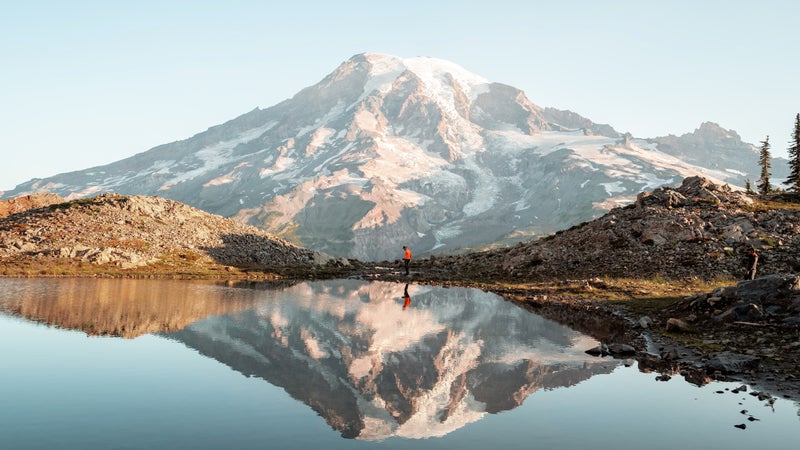
“���ϳԹ��� travelers are by nature more intrepid, more willing to make the sacrifices needed to experience the extraordinary, and they will likely lead the way,” says Richard Bangs, cofounder of the adventure company and the travel app , and a member of ’s founding team. Stowell agrees:��“Some of the aspects of adventure travel mean that it will be a more attractive option than ever. Enclosed places like mass-tourism resorts and packed tourist sites will be much less so.”
MT Sobek’s future bookings reflect travelers seeking more remote destinations, with increased��interest in Alaska and chartered raft trips. To cater to this demand, the company also recently launched a series of to national parks and other domestic wilderness areas.
, the largest small-group adventure company in the world, is noticing a similar turn toward��these types of trips. “From our North American customers specifically, we’re seeing a surge in interest for active tours that include outdoor experiences like trekking, hiking, and cycling,” says its CEO, James Thornton.��
James Sano, vice president��of travel, tourism, and conservation��at the , who has 35 years of experience in the industry, says he has witnessed the repeated return of adventure travelers after past disruptions like SARS. “They’re often early adopters, and their tolerance for risk is greater,” he says. “I think they’re going to be on the leading edge.”��
The first wave will be a return to local and domestic travel, with an emphasis on camping and road trips.
Our experts all agree on how travel will open up, but the timing remains uncertain. Put more simply, Bangs refers to��a quote from novelist William Goldman��about the movie business: “Nobody knows nothing.” Bangs��anticipates the return in stages: “One:��explore where we live. Two: take road trips to nearby state parks and beaches. Three:��go on interstate road trips to national parks, river trips, and hikes. Four:��make short, domestic air trips to wilderness destinations. Five:��international travel.” For many states and national parks that have begun phased reopenings, the first two steps have already commenced.
Phase three may present some challenges. Travelers will have to stay on top of the news and follow federal and state health precautions. But this hasn’t stopped road-trippers from planning—there’s been a spike in bookings at , an RV rental service. “We have seen our average daily bookings grow at an encouraging rate of 450 percent since April 1��and more traffic to our website than the year before,” says Jeff Cavins, its CEO, who is working closely with RV owners to implement new cleaning practices. “Once it’s safe to get out there, I think people will have a strong desire to control the cleanliness and safety of their environment, give themselves distance, and not have to worry about security lines, cramped seating, or crowded places.” , an Airbnb-like RV-rental marketplace, recently announced the highest recorded bookings since its founding—a 650 percent rise since the start of April.
Camping is positioned to become even more popular following lockdown restrictions. A recent KOA�� found that camping is likely to account for 16 percent of leisure trips post-pandemic, compared to 11 percent recorded before. The report also indicates that the lockdown could create a new class of campers, as 32 percent of leisure travelers who’ve never camped before expressed interest in starting. Campers are also planning to venture out responsibly—70 percent said that they plan to camp close to home, and 68 percent are willing to travel to less popular locations to avoid overcrowding.��
Camping and road trips are also more viable when many of us are dealing with financial uncertainty. “A critical factor the travel industry as a whole will have to consider in coming months is that many people have lost their jobs or had to take pay cuts during this time, so far-flung travel may not be feasible,” says Cavins of Outdoorsy. Of the prospective campers surveyed in the KOA report, 41 percent noted that they were most interested in its affordability.
Then we’ll start flying again.
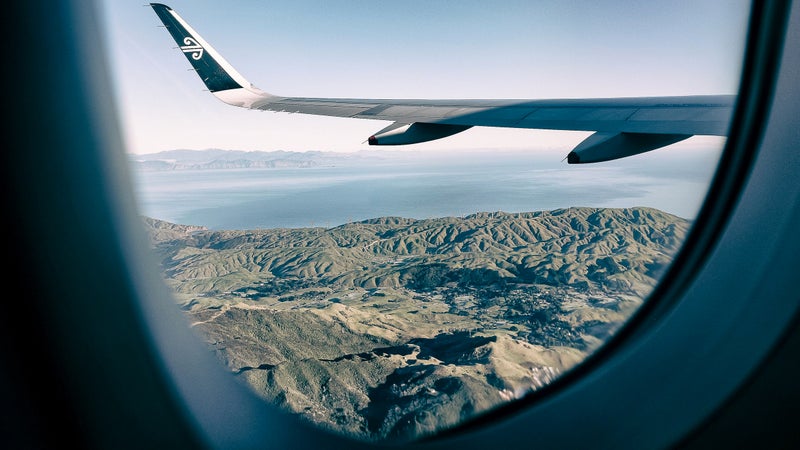
Next will come domestic air travel, with adventurers seeking off-the-grid, wilderness destinations for both DIY and small organized��group��trips. “Guided activities provide an opportunity for an adventure without assuming some of the risk that comes with independent ventures,” says Alex Kosseff, executive director of the . While its approximately 6,000 guides and instructors experienced mass cancellations this spring, they’re hopeful for a big comeback once it’s safe to travel domestically.��
As for international travel, outfitters are noticing a scheduling trend among clients. Intrepid Travel’s Thornton says that “May 2021 is the most popular time frame for rebooking trips, which is generally a longer booking window than we’re used to seeing. Those making new international bookings are planning to travel a little earlier, with the majority in March 2021.” Meanwhile, a few countries, like Iceland, Vietnam, and Greece, plan to in mid-June.
Scott Keyes, founder of the flight-deals newsletter , believes��that until there’s a��definitive breakthrough—whether that’s a vaccine or herd immunity is achieved—travel will return sporadically. “There won’t be an all-clear signal like the end of a fire drill,” he says. “Instead, certain places will open before others, and some places will likely go through waves of opening and closing.”
There will be a spike in bucket-list trips.��
What most of us have been missing during this time aren’t material things. We’re missing experiences. “That trip you’ve been telling yourself for six years you’re going to take but just haven’t yet?��More people are going to make those trips happen when we feel safe to travel again,” says Daniel Houghton, the former CEO of and the author of . According to of 2,200 travelers in the U.S., the UK, and Australia conducted by the booking site Skyscanner,��“Bucket-list travel is high on the agenda, with 80 percent of Americans likely to travel to their dream destination once restrictions are lifted.”
This is reflected in the most popular destinations for rebookings and new bookings. “The demand we’re seeing indicates a desire for remote places with natural surroundings, while also checking off bucket-list experiences,” says Thornton. His��company is seeing most of its rebookings for Peru, Ecuador, Antarctica, Greece, and Japan��and most of its new bookings for Antarctica, Ecuador, Peru, Egypt, and Morocco, in order of popularity. Similarly, ���ϳԹ��� GO is seeing the most interest in Alaska and British Columbia this summer and fall and New Zealand in 2021.
Now is also a good time to mark your calendars for those hard-to-get permit-only adventures that need to be booked up to a year in advance.��
And there will be deals.
“When it’s safe to do so, I’m not sure there will be a better time to be a budget traveler,” says Houghton. “The industry has been hit hard, and when the time is right, trips we once only dreamed of being able to afford could be in reach.”��That’s especially the case with flights, as airlines continue to slash future fares to encourage travelers to buy now for trips down the line.
According to Brian Kelly, CEO and founder of , a travel website focused on loyalty and credit-card programs, “Now is a great time to start planning trips for a post-coronavirus world.” Kelly has been seeing airlines offering fares for less than $100 to the Caribbean, wide-open date ranges for��award tickets to Europe for the winter holidays, and first-class tickets to Japan for just 55,000 miles in January 2021.��
There’s also been a 40 percent surge of what Keyes��of Scott’s Cheap Flights��calls “mistake fares”:��when technical glitches cause airlines to post fares at huge discounts. “With airlines doing major surgery to their schedules, one side effect has been a spike in the number of mistake fares,” says Keyes, who saw a $210 round-trip flight from Los Angeles to Santiago, Chile.��
But before you jump on any deals, be sure to closely read the terms of an airline’s change and cancellation policy and look into cancel-for-any-reason travel insurance.
Airlines won’t be the only place to find deals, either. ��recently announced that it will cover half the cost of a traveler’s airfare and a portion of their hotel stay to inspire tourists to return to the Italian island. And some hotel chains are offering ways travelers can spend now to travel later, which helps keep hotel staff paid or on health care. Cayuga Collections, a group of sustainable hotels in Central America, is offering a , in which your investment in a future stay now will double in value when you’re ready to book. Other travel deals are likely forthcoming.
We’ll want to spend quality time��with friends and family.
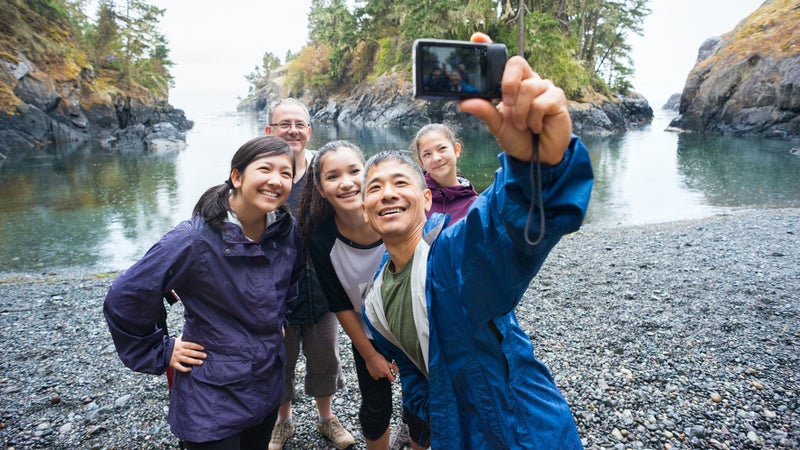
“With so many people forced to be separate from friends and family, we anticipate travelers wanting to make up for lost time with loved ones through meaningful experiences,” says Allison Fleece, cofounder��of , an adventure travel company that caters to women. “The pandemic age we’re living in is teaching us all about what’s important in our lives and how fragile life can be, and we think that will be reenforced by people’s travel decisions.”
Multigenerational trips will be a popular choice post-lockdown. “Reconnecting has become a huge part of our pause,��and what better way than doing so with all our loved ones in safe, wild places,” says Cunningham of ���ϳԹ��� GO. In fact, the glamping operator ��has seen��an “uptick in inquiries for smaller weddings and elopements, as well as delayed birthday and anniversary celebrations,” says Peter Mack, its CEO.
We’ll use travel agents and outfitters more often.��
When thousands of Americans got as lockdowns quickly��closed international borders, those who had a travel agent or an outfitter to lean on had a much easier time getting home than those who didn’t.��
“When the COVID-19 crisis began, our first priority was ensuring the safety of our customers and workers around the world,” says Intrepid Travel’s Thornton. “Our local tour leaders and global-operations team worked around the clock to help more than 3,000 travelers get home safely as borders were closing.” ���ϳԹ��� GO also went into emergency mode: “From getting clients safely evacuated out of countries before lockdowns went into effect and advocating on their behalf with travel-insurance companies to working with our ground partners to offer refunds for unused portions of trips cut short, our team worked long and hard to get this all done,” says Cunningham.
“There has been so much frustration for so many people who booked through online services, with recordings that lead to nowhere,” Cunningham adds. “Human-to-human contact is more important than ever going forward.”
Because the travel landscape will look very different for a while, and information found via online sources in forums and other places may be out of date, a travel agent or outfitter will have more accurate information about access, businesses that are open, and where it’s safest to go to avoid crowds.
Outfitters are building closer relationships with clients right now, sharing memories of past trips and dreaming about future ones. “We make regular outreaches with imagery and stories to keep our guests and potential guests dreaming,” says MT Sobek’s Bangs. There’s also been a bonding within the travel industry itself, with outfitters supporting each other. The ATTA has been bringing outfitters together through online seminars, and on May 26, it will launch a free community membership for financially compromised companies, laid-off employees, and others wanting to try out the organization to stay connected. (This will be live on May 26 for those interested in signing��up.)��
It might take longer than ever to get through an airport.
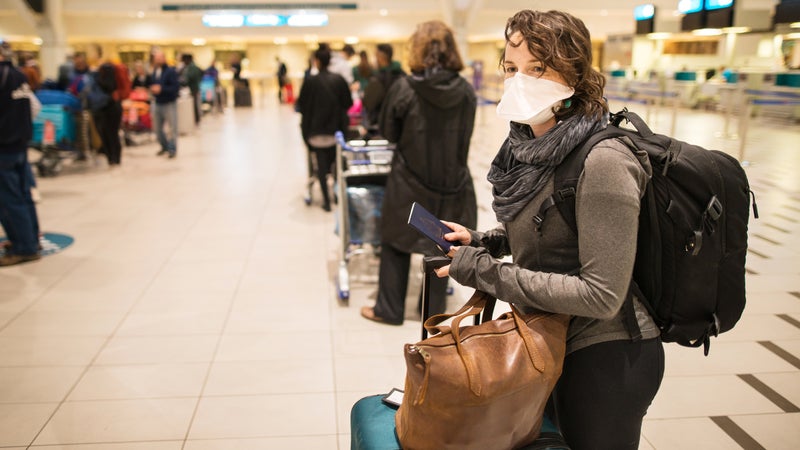
If you thought it took a long time before COVID-19, post-pandemic travel could be even more intense. “After 9/11, many new security measures were implemented, such as the introduction of TSA, bulletproof and locked cockpits, and the requirement of government-issued identification,” says the Points Guy’s Kelly. “The impact of COVID-19 will most likely lead to new health-based policies, such as boarding smaller groups of people at a time, requiring the sanitization of seats, and even eliminating seat-back pockets.”
While most airlines have already increased plane sanitation and require crew and travelers to wear masks, the FAA has yet to enforce any industry-wide regulations. This has resulted in an uneven response from domestic airlines, ranging from middle seats on large planes to other airlines announcing potential temperature screenings for passengers before boarding.��
Certain airlines have led the charge in instituting pre-boarding health screenings. “Emirates is already offering ,” says Cunningham. The airline has plans to expand that testing to all flights departing to countries that require arriving passengers be screened.
Many of us will remember the yellow card, a now defunct pamphlet issued by the World Health Organization in which a traveler’s vaccination dates were recorded. “For a big part of my career, certain countries required vaccinations for diseases like yellow fever, tetanus, and typhoid��and as part of the entry process��would ask you to produce your yellow book,” says Sano of the World Wildlife Fund. “I could easily envision a digital version of this, like a QR code, where you have electronic proof that you have been vaccinated.”
A similar movement is gaining momentum in the form of “immunity passports” that would be issued to those who have recovered from the virus and may have antibodies. According to CNBC, during a first-quarter-earnings call on April 22, Delta CEO Ed Bastian that the airline was considering instituting a number of measures, including immunity passports. “Could there be a new public-health agency coming out that requires a new passport to travel?” he asked. “We’ll be on the forefront of all those advances.”
has already started issuing health passports, while countries, including the UK, Germany, and Italy, are considering doing so. (It’s important to note that a number of health organizations not enough is yet known about the immunity of those who have recovered from the novel coronavirus.)��
When it comes to the future of airports, Puerto Rico’s Luis Muñoz Marín International Airport and Vienna International Airport are good indicators of what to expect. Luis Muñoz Marín��has installed thermal-imaging cameras that screen passengers upon arrival for temperatures above 100.3 degrees Fahrenheit. Those who exceed that threshold��and��show symptoms will be evaluated and quarantined. Meanwhile, travelers arriving in Vienna will get a swab test for COVID-19 that will be processed within three hours and cost $204. Those who test negative will be given a certificate and allowed to move freely, and those who test positive will be subject to a 14-day quarantine.��Biometric check-ins, TSA appointments, and barring non-passengers from entering airports are among the that could be implemented.
Travel companies will rethink their approach to health and safety.
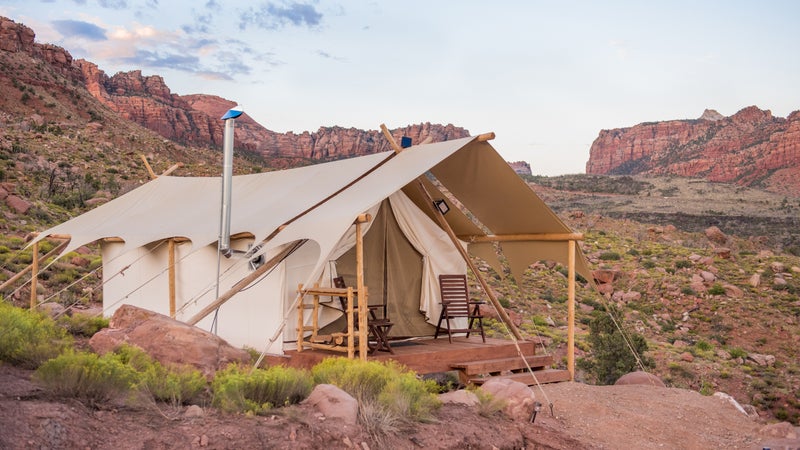
���ϳԹ��� travel outfitters are using this time to revamp their protocols. At , a company that specializes in bike tours, that means “enhancing safety training for trip leaders and working with hotel, restaurant, transport operators, and other vendors to abide by rigorous enhanced safety protocols for cleaning rooms, handling baggage, and preparing food, among others,” says CEO Tom Hale. He adds that “prior to the trip start, our guests will be asked to run through a pre-trip health screening to make sure we’ve done all we can to ensure that they’re good to go.”
Intrepid Travel will consider implementing similar steps in addition to “contactless check-in processes and increased transparency on hygiene,” Thornton says. Kathryn Walsh, founder of the expedition company , says they��will begin “making single tents available for everyone, including a final bleach-solution rinse on the dishes after meals��and individually packaging food to prevent cross contamination, to name a few.” And , known for its whitewater-rafting and sea-kayaking trips, plans to��conduct “guide and guest screenings before trips, enforce PPE when applicable, and give heightened attention to handwashing and the sanitation of vehicles and communal surfaces,” according to Steve Markle, the brand’s vice president��of sales and marketing.
Host-driven rental companies have had to rethink their protocols as well. On May 1, Airbnb launched an that will certify hosts who practice its new cleaning guidelines (developed in partnership with former U.S. surgeon general Vivek Murthy) and implement a minimum 24-hour waiting period between bookings. For hosts who can’t abide by the guidelines, the company has suggested waiting 72 hours from when the rental was last occupied before hosting new guests. Others, like the camping-booking site Hipcamp, have sent out to hosts on new cleaning and guest-interaction protocols. Hipcamp CEO Alyssa Ravasio says it has also “added an extra step to our booking flow��where all Hipcampers have to check a box to self-certify their booking doesn’t violate any local regulations or travel bans.”����
Glamping operators are poised to make a quick comeback due to the nature of their lodging setups. “Unlike traditional hotels or accommodation rentals, our air-handling systems consist of fresh air, our hotel lobbies��are big canvas tents, and our hallways��are winding paths through open fields and natural landscapes,” says Collective Retreats’ Mack. The company operates five locations across the country. “Over the past few months, we’ve continued to operate our retreat in Austin, Texas, and have started selling out many weekends,” he says. “At Collective Governors Island, in New York, we’ve had under ten cancellations post July 4, and for August, September, and October, we’re currently projected to be ahead of where we were last year at this time.”
, which operates luxury tent sites just outside national parks, is set to open its Great Smoky Mountains location on May 28, followed by Zion and Moab��on June 4, then Grand Canyon and Yellowstone on June 11. Each site will abide by its location’s reopening policies. Individual check-in via a touchscreen kiosk, takeout food and beverages for in-tent dining, and hand-sanitizing stations throughout camp are among the the company is implementing.
Travel will change for the better.
Our experts agreed that travel will become more intentional going forward. “We definitely think people will be more appreciative and attracted to meaningful experiences, responsibility, the environment, and moments that bring people together to learn and grow from each other in the post-pandemic world,” says Whoa Travel’s Allison Fleece. Walsh of Backpack Alaska agrees:��“I know I’ve fooled myself before in thinking that substance would spontaneously arrive out of traveling to a far-flung destination that sounded exotic.��This pandemic has highlighted that many people are craving something real and lasting.”��
Others noted that this time could lead to both travelers and travel companies prioritizing sustainability and ethics. “I think there will be a thinning of mass tourism, a thinning of meaningless experiences.��People will be looking for deeper experiences and less instant-gratification tourism,” says ���ϳԹ��� GO’s Cunningham. Stowell of the ATTA recalls what Canadian astrophysicist Hubert Reeves said at the association’s 2009 summit about climate change: “I’m not optimistic, I’m not pessimistic, I’m determined.” Stowell adds:��“We at ATTA and in our community are determined to see travel done better. In terms of some of the more destructive types of tourism, those should be reimagined and rebuilt entirely to start being healthy for destinations. Now is the time for destinations to take charge and demand that tourism be helpful to their environmental efforts and supportive of locals instead of harmful or exploitative.”
Many companies are already looking at how they can recover in a way that’s more sustainable, which the World Wildlife Fund’s Sano says could turn out to be more profitable. “As we’ve been able to see from the impact this pandemic has had on the environment, travelers will likely be more aware of their impact than ever before,” he says. Hipcamp’s Ravasio adds: “In moments like this, where it has become incredibly clear that we are all connected, travel provides us with an opportunity to practice empathy. How can I respect and take care of this community that I am visiting?”
All��see a promising future. “I’m more hopeful for the future of travel than I’ve ever been,” says Daniel��Houghton. “Travel offers something you can’t fake or create at home. All the things that we long for in quarantine—fresh air, places we’ve never been, having dinner with people we just met—these are travel’s finest qualities that are endlessly available, no matter where you find yourself on the planet.”
MT Sobek’s��Bangs emphasizes that travel always comes back: “This passion for adventure does not go away��or flatten with time. It is a fundamental desire, a curiosity itch, and when the road opens, there will be travelers, top down, full speed ahead.”
Deputy Editor Mary Turner and Assistant Editor Kaelyn Lynch contributed to the reporting of this article.
